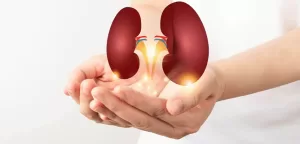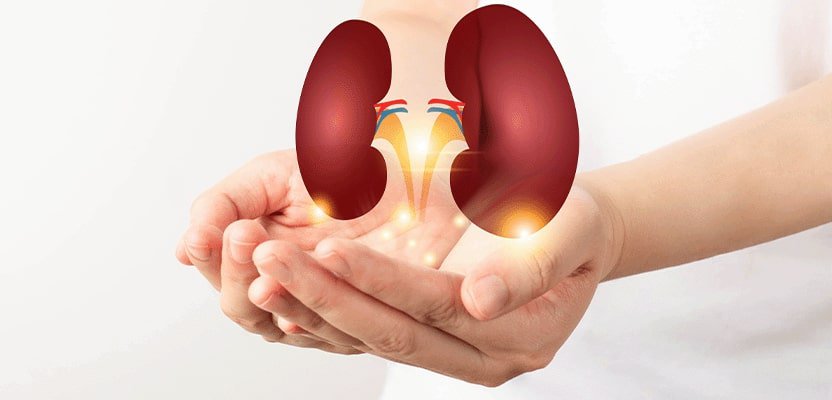+90 533 813 89 77
info@bookingforhealth.com

What is Kidney Transplant ?

What are the Health Effects of Kidneys?
The kidneys are vital organs that play a very important role in maintaining the overall health of the body. The kidneys have very important effects on health.
The kidneys filter waste and excess fluids from the bloodstream. This maintains the balance of electrolytes and other substances in the body. To help regulate blood pressure, the kidneys produce a hormone called renin. When blood pressure falls, the kidneys release renin, which helps to raise blood pressure. The kidneys produce several hormones, including erythropoietin, which stimulates the production of red blood cells, and calcitriol, which helps regulate calcium metabolism. One of the body’s important organs that helps absorb dietary calcium, the kidney plays a role in maintaining healthy bones by producing calcitriol.
What is Living Donor Kidney Transplant?
A living donor kidney transplant is a surgical procedure in which a healthy individual donates one of their kidneys to a person with kidney failure. The donor kidney is transplanted into the recipient’s body to replace their damaged or diseased kidneys.
Kidney transplantation is typically the treatment of choice for people with kidney failure because it can significantly improve their quality of life and reduce the need for dialysis. Living donor kidney transplants have several advantages over deceased donor kidney transplants. For example, living donor kidneys tend to function better and last longer after transplantation, and the waiting time for a living donor kidney transplant is generally shorter than the waiting time for a deceased donor kidney transplant.
İn addition, living donor kidney transplantation also has risks for both the donor and recipient. The surgery carries risks of complications such as infection, bleeding, and reaction to anesthesia. In addition, the donor will need to undergo a thorough medical evaluation to ensure that he or she is healthy enough to donate a kidney.
Who are Good Candidates for Kidney Transplantation?
Kidney transplantation is typically recommended for individuals who have the end-stage renal disease (ESRD), which is a severe form of kidney disease that requires dialysis or a kidney transplant to maintain life. There are several things to consider when determining whether a person is a good candidate for a kidney transplant.
- Overall Health: A person must be in good general health to undergo the transplant surgery and to be able to take the necessary medications to prevent organ rejection.
- Age: While there is no upper age limit for kidney transplantation, older adults may be less likely to be considered good candidates due to the increased risk of complications associated with surgery.
- Blood Type: The blood type of the donor and recipient must be compatible for the transplant to be successful.
- Life Expectancy: A person’s life expectancy must be long enough to make the transplant worthwhile, as kidney transplants require lifelong follow-up care and medication.
- Psychological Evaluation: A person must be emotionally and mentally prepared to undergo a transplant and be able to follow the required medical treatment plan.
It’s important to note that the decision to undergo a kidney transplant is a personal one, and there are risks and benefits to consider. It’s important to talk to a healthcare provider and a transplant center to determine if a kidney transplant is a right choice for you.

What Should Be Considered After Kidney Transplantation?
After a kidney transplant, care must be taken to maintain good health and take good care of the new kidney to ensure that it works properly and lasts as long as possible. There are several things to consider at this point.
- Medication: You will need to take immunosuppressant medications to prevent the rejection of the new kidney. It is important to take these medications as prescribed and not miss any doses.
- Diet and Nutrition: A healthy diet is important to maintain the health of your new kidney. Your doctor or a nutritionist may provide specific recommendations for your diet.
- Exercise: Regular physical activity can help improve your overall health and the function of your new kidney. Talk to your doctor about what types of exercise are safe for you.
- Follow-up Care: It is important to attend all follow-up appointments with your transplant team to monitor the health of your new kidney and address any concerns or problems.
- Infection Prevention: Because immunosuppressant medications weaken the immune system, it is important to take steps to prevent infections, such as washing your hands frequently and avoiding close contact with people who are sick.
- Managing Stress: It is normal to feel anxious or stressed after a transplant, but it is important to find healthy ways to manage stress, such as through relaxation techniques or counseling.
- Donor Care: If your transplant was made possible by a living donor, it is important to ensure that the donor is healthy and receives any necessary follow-up care



